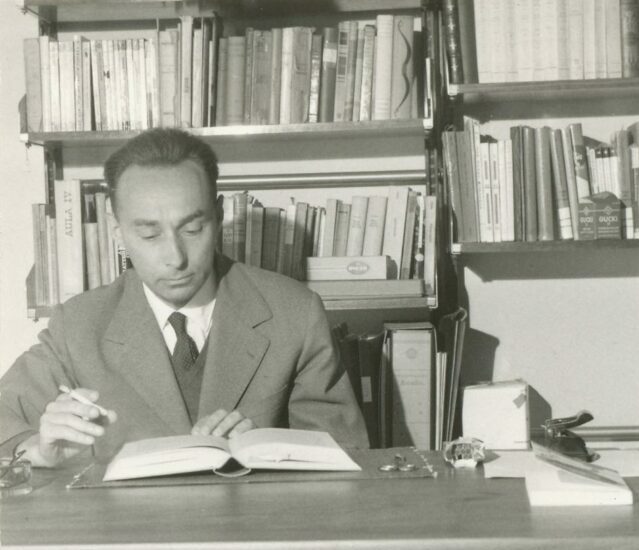The theme of this year’s annual Holocaust Memorial Day on 27 January 2023 is “ordinary people”. Historically, this might apply to “ordinary” German people who voted for Adolf Hitler and continued to support him when he subsequently destroyed Germany’s democratic institutions. Worse still, he remained popular, reinforced by widespread fear, even after the Nazis began to murder disabled Germans, political opponents, and the long-standing Jewish population of Germany. Most ordinary Germans stood by and let the Nazis do their worst.

The theme may also apply to the world at large made up of “ordinary people” who did little to oppose the rise of Nazism until it was too late. As Elie Wiesel put it, the “world remained silent” in every phase of the genocide of the Jewish people. Wiesel survived Auschwitz but he remained traumatized by his abiding sense of isolation from an uncaring world. There were eyewitnesses to the ghettoization and starvation of millions of Jews in Poland in the early years of the war; eyewitnesses to the concentration camps; and, before the industrialized murder of 450,000 Hungarian Jews in the final months of the war, detailed knowledge of the horrors of the death camps was widespread. This all happened on the continent of Europe but was largely ignored.
Nothing was done to stop the genocide. The allied failure to bomb the train lines into Auschwitz (when nearby satellite camps were being bombed) meant that the crematoria continued to operate at full capacity until the Red Army arrived. One eyewitness doused himself in petrol and set himself alight outside of Downing Street to alert Sir Winston Churchill to the horrors of Auschwitz. But it made no difference. There were newspaper reports, but these were tucked away in the middle of the paper indicating that the Holocaust was not a priority for the war effort even at its dreadful peak.
But I would prefer to think of the theme of “ordinary people” applying to my students who have taken my Holocaust Testimony course for over three decades (two at Reading). When I first offered the course, the first at a British University, I thought that it would last for a year or two and give me a chance to read the most important testimonies by such camp survivors as Wiesel, Primo Levi, Tadeusz Borowski, Jean Améry, Charlotte Delbo and Ruth Kluger. Undergraduate students, however, know better and have opted for the course in large numbers whenever it was offered. These are “ordinary people” who care about the issues raised by those who are complicit in genocide.
Students are well aware that the Holocaust did not end the history of genocide neither in Europe nor in Africa nor Asia. The horrors of Pol Pot, the Rwandan genocide, the ethnic cleansing in the Balkans (which is flaring up again) are all part of their background. Most recently, they know that the world’s silence in 2014, when Russia occupied the Crimea, has led to the current horrific destruction of Ukraine, and the murder of thousands of civilians, by the debased Russian army. When ordinary people do nothing, evil happens.
Bryan Cheyette is a Professor of English Literature at the University of Reading.
